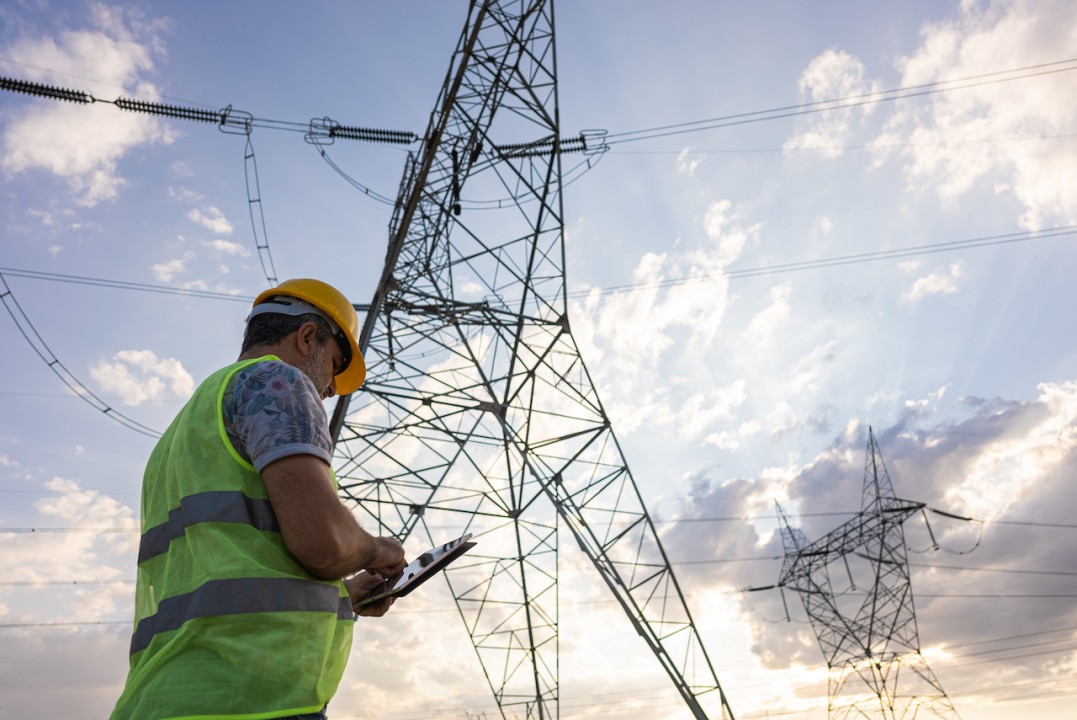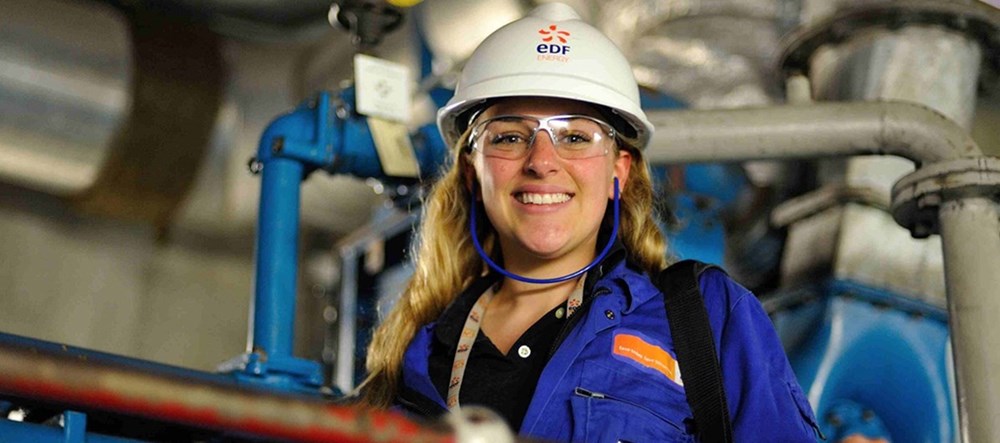
In an era where the stability and sustainability of essential services are paramount, discover why is public utilities a good career pathas a focal point for those seeking a rewarding and impactful professional journey. The operation, maintenance, and development of crucial services like electricity, water, natural gas, and telecommunications constitute the backbone of society.
Individuals venturing into the realm of public utilities find themselves at the forefront of ensuring these vital services continue to function seamlessly, making this field an appealing choice for those drawn to stability, societal contribution, and technological innovation.
Why Decide On A Public Utilities Career Path?
Deciding on a careerin public utilities can be a strategic and rewarding choice for several reasons. Here are some compelling points to consider:
Job Stability And Essential Services
One of the primary reasons to opt for a career in public utilities is the inherent job stability. Public utilities provide essential services that are vital for modern living, such as electricity, water, natural gas, and telecommunications. These services are fundamental, and the demand for them remains constant, irrespective of economic fluctuations. As a result, careers in public utilities often offer a high level of job security, making them an attractive option for those seeking long-term stability in their professional lives.
Contributing To Society
Individuals drawn to the idea of making a tangible impact on society may find a public utilities career highly rewarding. The services provided by this sector directly impact the well-being and functioning of communities. From ensuring continuous power supply to improving water quality and managing communication networks, working in public utilities allows professionals to contribute directly to the betterment of society. Knowing that your work is crucial for the daily lives of people can be immensely fulfilling.
Technological Advancements And Innovation
The field of public utilities is not static; it constantly evolves with technological advancements. Professionals in this field have the opportunity to work on innovative solutions, whether it's implementing smart grid technologies for efficient energy distribution or developing environmentally sustainable practices. The industry welcomes new ideas and solutions, providing an environment where creativity and innovation are valued.
Diverse Career Paths
Public utilities offer a diverse range of career paths suitable for various skill sets and interests. From engineering and technology roles to environmental sustainability, management, and customer service, there are opportunities for individuals with different backgrounds and expertise. Whether you're interested in technical aspects, management, environmental impact, or customer relations, public utilities provide avenues for professional growth and specialization.
Challenges And Fulfillment
Working in public utilities can present unique challenges. From regulatory changes to technological advancements, professionals may need to adapt and continuously learn to stay current in the field. Roles within public utilities can also involve physically demanding tasks, such as fieldwork for maintenance and repairs. However, overcoming these challenges can bring a sense of fulfillment, knowing that you are contributing to the resilience and efficiency of critical infrastructure.
What Do People Working In Public Utilities Do?
The professionals working within the realm of public utilities play a crucial role in upholding the basic functions of our communities, from local neighborhoods to entire cities. These individuals shoulder the responsibility of maintaining essential services that are indispensable to daily life. They cover a spectrum of critical tasks, from ensuring public safety through nuclear and radioactive monitoring to safeguarding public health by overseeing water, energy, and sewer systems.
The scope of work demands an in-depth comprehension of the various systems, equipment, and intricate networks that facilitate these essential services. It's not merely about understanding how these systems operate but also adhering to stringent state and federal standards that govern the maintenance and operation of these utilities. Thus, professionals in public utilities must navigate a blend of hands-on practicality when dealing with equipment and paperwork that ensures compliance and regulatory adherence.
Utilities play a fundamental role in providing essential services that are critical to modern life. Their primary function is to ensure the continuous and reliable delivery of services such as electricity, water, natural gas, sewage treatment, and telecommunications to homes, businesses, and communities. The roles of utilities encompass several key aspects:
Provision Of Essential Services
Utilities are responsible for generating, transmitting, and distributing electricity to homes and businesses. They also manage water treatment plants to ensure a clean and safe water supply, as well as natural gas systems for heating and cooking. Moreover, utilities handle the collection and treatment of wastewater to protect public health and the environment.
Infrastructure Maintenance And Development
Maintaining and developing infrastructure is a crucial role of utilities. This involves the upkeep of power grids, water supply networks, sewage treatment plants, and gas pipelines. Utilities continually upgrade and expand these systems to meet the growing demands of communities and ensure efficiency and safety.
Ensuring Reliability And Safety
Reliability and safety are paramount in the utility sector. Utilities work to ensure that these essential services are delivered without interruptions, implementing measures to prevent outages and system failures. They adhere to stringent safety standards and regulations to protect the public and the environment.
Innovation And Adaptation
Utility companies embrace technological advancements to improve efficiency and sustainability. They invest in innovation, implementing smart grids, renewable energy sources, and environmentally friendly practices to reduce their environmental impact and better serve the public.
Customer Service And Communication
Utilities engage in customer service, addressing queries, handling billing, and responding to emergencies. Effective communication with customers and the public is essential to disseminate information about services, outages, and any planned maintenance or system improvements.
What Do Public Utilities Jobs Pay?
Salaries in public utilities can vary based on factors such as job position, location, experience, and level of education. However, to provide a general overview:
- Entry-Level Positions - Entry-level roles in public utilities such as technicians or customer service representatives may start at an average of $30,000 to $40,000 annually.
- Specialized or Mid-Level Positions - Specialized positions, such as engineers or environmental specialists, might offer salaries ranging from $60,000 to $100,000 per year, depending on expertise and experience.
- Management and Executive Levels - Managers, project leads, or those in executive positions within public utilities can earn salaries exceeding $100,000 annually. This could vary significantly based on the level of responsibility, the size of the utility company, and geographic location.
It's important to note that the pay scale for public utility jobs can differ based on the specific field within utilities, the size of the company, the regional cost of living, and the demand for specialized skills. Additionally, overtime, bonuses, and benefits such as healthcare and retirement plans are often included in compensation packages.
In recent years, there has been a growing emphasis on the importance of these roles, especially in the context of sustainable infrastructure and environmental concerns. This has sometimes led to increased remuneration for professionals in these sectors, reflecting the vital nature of their work.
The 10 Best-paying Jobs In Public Utilities
Gas Controller
A Gas Controller works for large oil and gas firms. They also keep an eye on real-time info from the pipeline and act on it. As part of the job, the temperature, flow rate, and pressure in the gas cylinder must also be changed. One of their jobs is to keep an eye on the equipment and offer ways to make it better.
To put it another way, a Gas Controller helps keep the world running. You don't always need a Bachelor's degree for this job, which is great. But going to college will help you do even better in your job in the field.
A Gas Controller makes an average of $121,375 a year. It's one of the best jobs in public services and a lot easier to get than the other jobs on the list. So, make sure that your skills match the job.
Substation Engineer
For this job, you need to know how tomake electric systems' tools work better. They also do a check and review of the quality of the equipment that is already there. The person in this job also has to fix generators, electric circuits, and other things with the help of electricians. Designing tools to help people is also part of this job.
Anyone who wants this job needs to have a degree in Electrical Engineering. For this job, you need to have good technical skills. It would also be very helpful if you could think of new ideas and organize things well for this job. Because of this, you need to be good at fixing problems.
For the job, you also need to be able to communicate clearly both in writing and in person. You can expect to make $120,253 a year in this job in the United States. The pay may be different for people with different skills, years of experience, etc. There are a lot of great benefits that come with this job, and it pays well.
Wind Site Manager
Several things need to be done to keep a wind farm running. The Site Manager is in charge of making sure everything runs as easily as possible. People in this job are hired by utility companies or power producers. That's where the Wind Farm Manager comes in.
This job also needs someone to make sure the wind farm is safe. They make sure that everyone who works on the site follows the rules. In short, this job requires someone to be in charge of running a Wind Farm every day. Of course, to do this job well, you also need to be a great leader. For the job, you also need to be able to talk to people well.
A Wind Farm Manager makes about $97,500 a year on average. It's one of the best-paying jobs in public services, and you'll also get some nice perks. The pay will depend on how much knowledge you have.
Power Plant Engineer
A Power Plant Engineer is in charge of the factory part of the power plant. They keep an eye on all the important processes and make sure they work well. A big part of a Power Plant Engineer's job is fixing things that break down in the plant.
Most people need a Bachelor's degree in engineering to do this job. To do well on the job, you also need to know how power plants work and how they are designed. The person in this job also needs to be able to communicate well and be a good supervisor.
There is also a lot of preventive repair that a Plant Engineer has to do. They keep an eye out for holes in the system and fix them before they become bigger problems. With an average salary of $97,163, it is one of the best jobs in public services that pays well. More certifications and better skills can lead to more moneyand nice things in this job.
Nuclear Licensing Engineer
In every nuclear plant, safety is very important. Of course, it needs professionals to make sure it's safe. That's why this job is important. In this job, it's your job to make sure that the nuclear plant follows the rules. They also help in situations and make sure that damage is kept to a minimum.
For this job, you have to go through training at a nuclear facility. You must also have at least a bachelor's degree in a related area to work in this position. It will be good for the candidates if they have knowledge of nuclear energy. This job has a lot of room for growth. Have you got the
You can make $86,865 a year in this job. Any extra skills or certifications are seen as a big plus and can help the pay. So, if you know a lot about nuclear energy, this might be the right job for you. In the end, it also guarantees steady job growth.
Water Engineer
A water engineer plans out pipelines, pumping stations, and methods for moving water. They also offer effective ways to treat water. For your job as a Water Engineer, you'll have to go on many trips and work in all kinds of weather. They also look at how much different ways of treating water would cost to find the most cost-effective ones.
In short, they make sure that the water we drink is clean and free of impurities. For this job, you have to work from the office and out in the field. There are times when someone may also have to deal with problems.
A Water Engineer makes an average of $93,5115 a year in the United States. This makes it one of the best-paying jobs in Public Utilities. Once more, the pay will depend on how many years of experience the person has.
Radiation Engineer
A Radiation Engineer checks the area around a nuclear power plant to see how radiation affects it. To figure out what radiation does, they do tests and studies. They also have to write reports on systems and tools before and after they are exposed to nuclear radiation as part of their job. Of course, the job needs you.
They also figure out ways to use nuclear power that are better and last longer. You need to have a Ph.D. in engineering or physics to get this job. They also make test plans and test gear designs.
A Radiation Engineer makes about $92,000 a year on average. It is one of the best jobs in public services in terms of pay. You also need to have worked in the field before. There are a lot of good things about this job.
Education And Certification Requirements For A Career In Public Utilities
A career in public utilities encompasses a diverse range of roles that have varying education and certification requirements. Here's an overview of common educational paths and certifications associated with different positions in the public utilities sector:
Engineering Roles
- Education - Most engineering roles within public utilities typically require a bachelor's degree in relevant fields such as Electrical Engineering, Mechanical Engineering, Civil Engineering, or Environmental Engineering.
- Certifications - Obtaining a Professional Engineer (PE) license is often beneficial for engineering positions. This license typically involves passing the Fundamentals of Engineering (FE) exam followed by the Principles and Practice of Engineering (PE) exam after gaining relevant work experience.
Technical And Field Positions
- Education - These roles might require vocational training, associate degrees, or specific certifications in fields related to the job scope, such as electrical systems, mechanics, or water treatment.
- Certifications - Specific industry certifications might be required or beneficial, such as Certified Control Systems Technician (CCST) for control systems or Water Treatment Operator Certification for water treatment roles.
Management And Leadership Positions
- Education - Management roles in public utilities often necessitate a bachelor's degree in areas like BusinessAdministration, Management, or Public Administration. Advanced degrees, such as an MBA, could be advantageous for higher managerial positions.
- Certifications - Leadershipcertifications like Certified Public Manager (CPM) or Project Management Professional (PMP) may be sought after for certain managerial roles.
Environmental And Regulatory Compliance
- Education - Environmental positions often require degrees in Environmental Science, Biology, Chemistry, or related fields. For compliance roles, backgrounds in law, environmental policy, or government regulations can be beneficial.
- Certifications - Certifications like Certified Environmental Professional (CEP) or Environmental Compliance Professional (ECP) might be helpful for individuals working in environmental and regulatory compliance positions.
Energy And Sustainability Roles
- Education - Degrees in Energy Management, Sustainable Energy, or Environmental Science might be relevant for roles focusing on renewable energy and sustainability within public utilities.
- Certifications - Certifications such as LEED (Leadership in Energy and Environmental Design) for professionals involved in green building or renewable energy certifications could be advantageous.
In addition to formal education and certifications, on-the-job training, internships, and continuing education to keep up with technological advancements and regulatory changes are often integral for career progression in the public utilities sector. Depending on the specific role and the nature of the work involved, additional requirements or preferences for specific certifications or licenses may exist within different regions and utility companies.
Frequently Asked Questions
What Does Utility Worker Do?
Utility workers are in charge of keeping the company's buildings and tools clean and in good shape. Their job is to keep the company buildings in good shape, fix broken equipment, check over finished projects, and make sure they follow state health and safety rules.
Why Are Utilities Important?
The basic services that your home, apartment, or businessneeds to stay comfy and run smoothly are called utilities. Water, sewer, electricity, gas, trash, and recycling are all common services. Technology services like internet, phone, cable TV, and security can also be thought of as utilities.
What Is An Example Of A Utility Job?
Most of the time, Utility Workers are also in charge of cleaning up other parts of a job site. A kitchen utility worker might be in charge of cleaning food and cooking tools, while a manufacturing utility worker might be in charge of cleaning machines that make things.
What Are Utility Skills?
A useful skill is one that doesn't deal with fighting and works with the world around you. Classes can use utility skills to get around and deal with dangers in the world.
Conclusion
The realm of public utilities stands as an integral cornerstone of modern society, offering a mosaic of opportunities for those looking to contribute meaningfully to the community. As technology continues to advance and the demand for essential services remains constant, a career in public utilities proves to be not only stable and rewarding but also a pathway to making a substantial impact. For those with a passion for problem-solving, innovation, and ensuring the smooth operation of fundamental services, embarking on a career in public utilities holds the promise of a fulfilling and substantial professional journey.


